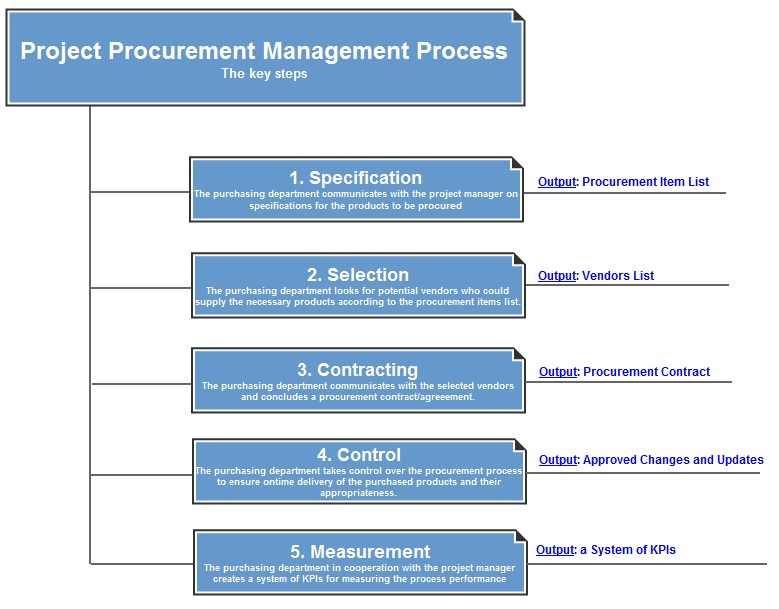Top 5 Considerations for Effective Project HR Management
 If you ask successful project managers which task among their duties is most challenging, most likely they will tell you about managing human resources as this task takes much of their time and effort. Trying to allocate right employees with right skills can be extremely challenging, especially if you deal with large project teams. Here are 5 considerations to help you achieve effective project HR management and maximize success.
If you ask successful project managers which task among their duties is most challenging, most likely they will tell you about managing human resources as this task takes much of their time and effort. Trying to allocate right employees with right skills can be extremely challenging, especially if you deal with large project teams. Here are 5 considerations to help you achieve effective project HR management and maximize success.
Have a Project HR Management System in Place
All projects are different, so each one requires a specific skill set. For example: an ad campaign requires sales reps, market researchers and PR professionals, while a software development project requires programmers, QA engineers, and technical personnel. Involving the right resources with the right skills in your project can be extremely challenging without an effective human resource management process in place.
This process intends to recruit employees and develop their skills and abilities so that they deliver higher value to assigned projects. HR management helps you determine employee availability and analyze workload. By getting access to job schedules, tasks and work sheets it becomes easier for you to make right assignments. There should be a system to keep and update all records on team members and their availability, competence and current workload. Even if your team members are dispersed across multiple locations, such a system will help you keep track of the latest changes in resource schedules, action plans and HR structures.
Allocate Human Resources Wisely
Once you analyze and understand employee schedules and availability, now you can begin to allocate your team members more effectively. Note that in many organizations about 10-15% of all employees demonstrate the greatest performance so they’re overbooked. Everyone wants these top performers to participate in their projects. But when one of the performers gets sick or takes a vacation their job assignments get stuck.
So when allocating human resources, you need to consider how much each team member is loaded with current work and whether this person demonstrates higher performance. For example, if an employee is 100% allocated, you shouldn’t involve this individual in a new project, despite he or she is a top performer. If another team member is 80% allocated, you know there are 20% that can be assigned to a new project. So when you get accurate data on employee workload and performance, you can avoid troubles associated with under-allocated project HR and the burnout of overloaded employees.
Consider Top Factors of Effective Staffing
When you’re going to take a new project management initiative, obviously your first steps should be to carefully map out everything in advance, and particularly to create a staffing plan. Such a plan should consider and address the HR management needs of your project, including roles, responsibilities and skills. Careful staff planning lets you define the expected behaviors for your team, assign the duties or obligations required by your project, and allocate the right skills across tasks and activities.
Factor analysis will help your identify and select project HR with the right knowledge and talents. After you evaluate the skills of each candidate to your team, you create a profile for that candidate and compare it to the baseline level (factors) that best represents the project HR management requirements. Spider chart will help you visualize and compare candidates. Those candidates that best comply with the baseline are considered for being team members.
Take on Projects Your Team is able to Deliver
Taking on a new project is always challenging because you don’t know for sure whether your team can compete it by the deadline. However, when you clearly and unambiguously realize what resources are available and what their best skills are, you can figure out which human resources can be the driving force for project success. With the right HR in place and the right skill set you no longer have to guess and can resolutely take on new projects.
The success of a project depends greatly on a decision maker’s ability to soberly evaluate employee skills and effectively manage project HR. In larger organizations, it becomes harder to find and free up the right people and get them to implement projects. In small organizations, however, lack of skilled and experienced personnel makes it nearly impossible to take on new projects, despite the revenue they would bring.
Meanwhile, keeping a watchful eye on what human resources are assigned to tasks, how long it takes to complete those tasks on schedule, and how much effort they are able to make are the three components that can help you avoid project HR management troubles in the long run. Once you take into account these top considerations you increase your chances for successful staffing and project management, making your company profitable and your customers satisfied.
Track Time for Accurate Payroll and Billing
Effective time tracking lets measure the cost of labor and evaluate the value delivered by project human resources. When you know exactly how much time each team member spends on tasks you can calculate the amount to be paid. Payroll data helps you measure the ROI of your project. Time tracking also allows you to collect and log billing data on actual working hours spent on client assignments, rates, penalties, bonuses, etc. This data will be helpful in issuing invoices for customers and reporting on HR performance.
Besides, time tracking helps executives and project managers address HR-related problems much faster. Let’s say, you see right away such a negative situation that 15% of the project’s budget has been spent while only 5% of the work has been done – because you detect this inefficiency early on, you get a higher chance of recovery (for example by re-allocating your team members more effectively). In case you don’t have this information in advance you will get less time for corrective actions and problem solving.













